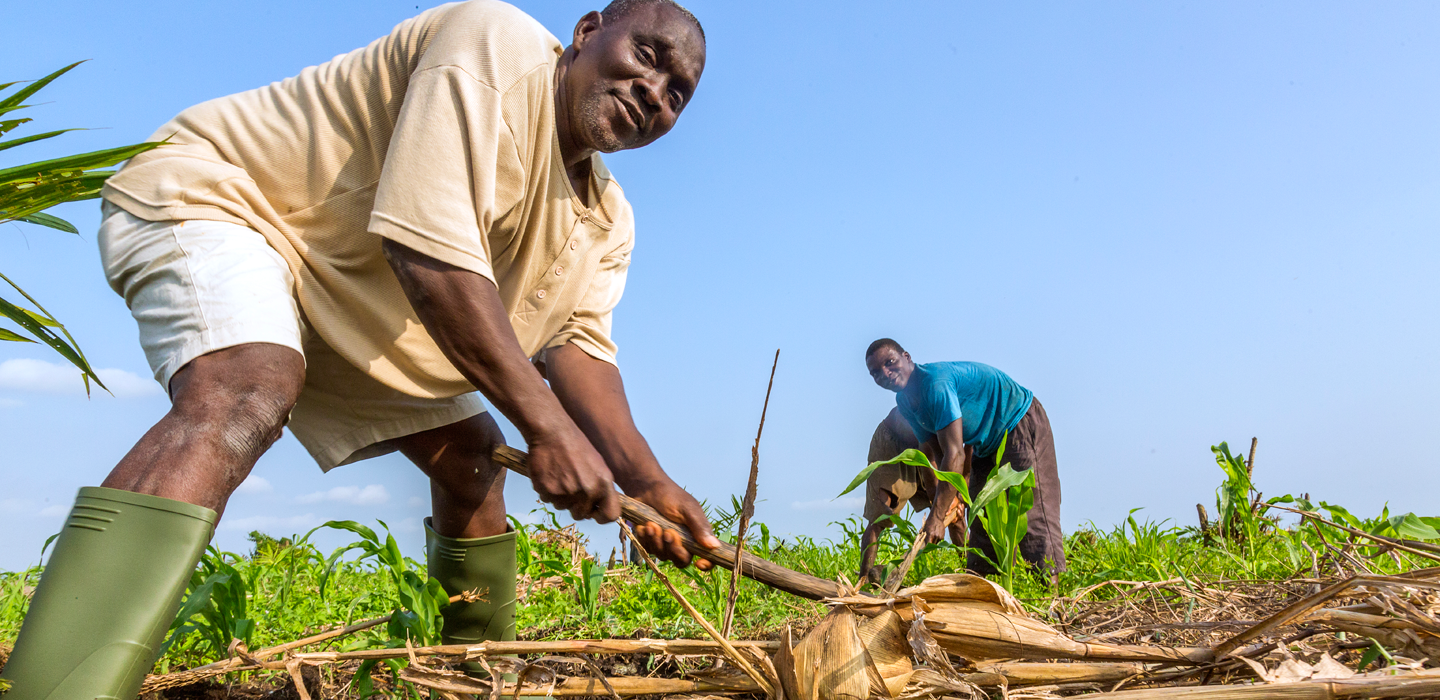A tool to make rural investments more resilient
IFAD Asset Request Portlet
Asset Publisher
A tool to make rural investments more resilient
Estimated reading time: 2 minutes
Climate change has made crop production more unpredictable – if rainfall helped this harvest, an unexpected drought could destroy the next. So how can one decide to invest in millet in Chad's Kanem region or if it's too risky put money in wheat in Lesotho's Thaba-Tseka?
Data is crucial for investors, and the lack of it may discourage or distort investments in sustainable development. Finding data is not an easy job, especially when you are looking for numbers on remote areas in countries with low data and statistical capacity and where resources for research and monitoring are very limited. This is too often the case for smallholder agriculture, even more so when it comes to the current and future effects of climate change on crop production.
With climate change increasingly disturbing temperature and precipitation patterns, agricultural production is projected to be increasingly affected. Adaptation to climate change is needed to reduce this vulnerability, and this has motivated IFAD to develop the Climate Adaptation in Rural Development (CARD) Assessment Tool.
Simplifying datasets
The assessment tool simplifies datasets from studies in academic journals. It is a simple Excel-based instrument that eases the quantitative integration of climate-related risks in investments and strategies, food security studies and rural development policies.
The tool provides an easy access to projections of the effects of climate change on the yield of major crops at the national and subnational levels. Currently available data covers 17 major crops in nearly all countries in North Africa, West and Central Africa, and East and Southern Africa. All IFAD operational regions will be available in the course of 2019.
With its user-friendly interface, CARD is intuitive to use and practical, being primarily conceived for non-expert public and private investors and decision-makers willing to better account for climate risks in their investments and decisions. The initiative also aims to foster evidence-based policy dialogues on the issue of agriculture and climate change. This ultimately contributes to promote investments in sustainable development that take climate into consideration.
Robustness
The data provided in CARD derive from peer-reviewed publications that assess crop yield changes under climate change using gridded crop-climate models based on long-term simulations. This model ensemble, called ISIMIP (Inter-Sectoral Impacts Model Intercomparison Project) Fast Track, is constantly updated by scientific groups in collaboration with the Agricultural Model Intercomparison and Improvement Project (AgMIP)
The general idea underlying CARD is to use an ensemble of global gridded crop-climate models, in the same climate scenario (the high warming one, RCP8.5 – see user guide for details), in order to explore a number of possible levels of risk in the same warming scenario. The range for future crop yields from the model ensemble is then summarized into simpler statistical indicators (e.g. the median) in the Excel interface.
Increased confidence
By offering such peer-reviewed and robust data on key crops, CARD aims to ensure the positive development impacts of agricultural and rural investments, hence returns for the smallholders, the society and governments. In addition, as CARD offers a more in-depth assessment of the risks, it also contributes to give private investors more confidence to invest in rural development.
In order to keep on improving the data and adding new functionalities in CARD, IFAD also calls for new scientific contributions relevant to decision-making in agricultural and rural development under climate change.
The initiative kicks off with initial funding from the second phase of IFAD's Adaptation for Smallholder Agriculture Programme (ASAP 2). The CARD initiative welcomes new resources for capacity building, future research and data integration.
More information: Climate Adaptation in Rural Development (CARD) Assessment Tool
Publication date: 03 April 2019